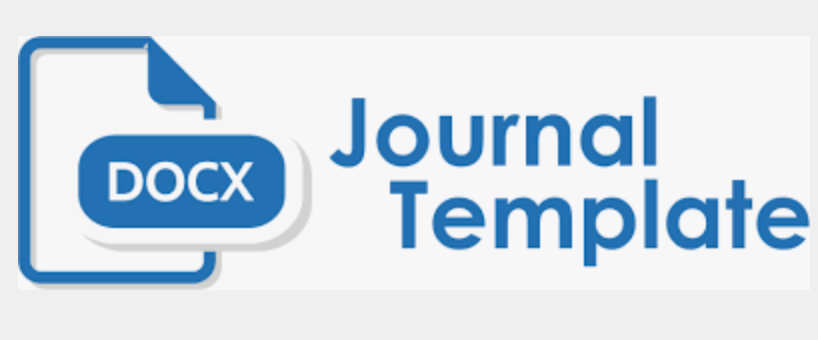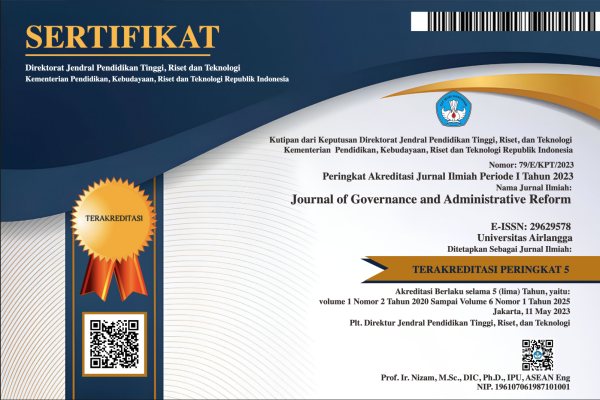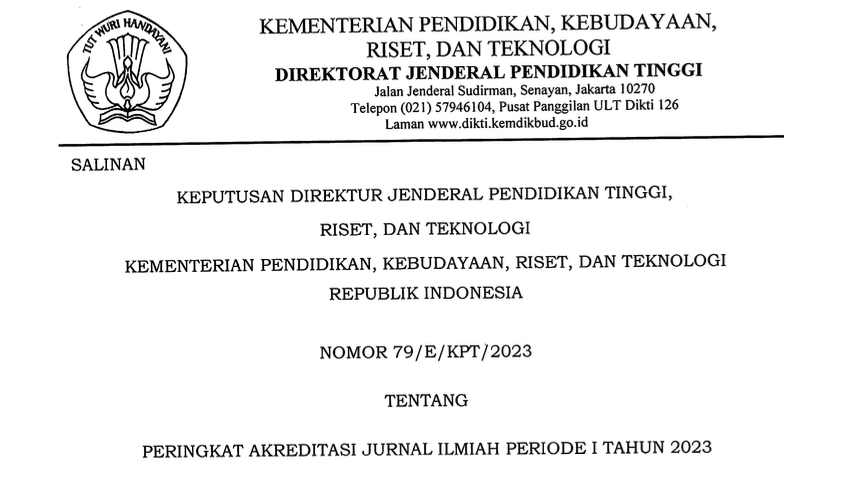One Stop Learning Innovation Rumah Kedelai Grobogan as an Effort to Strengthen Indonesia's Food Security
Downloads
Abstract
The objective of this paper is to analyze the 'One Stop Learning' innovation at Rumah Kedelai Grobogan (RKG) and its impact on strengthening food security in Indonesia, considering the high national demand for soybeans and the dependency on imports. This research employs a qualitative approach with a case study method, incorporating secondary data analysis, stakeholder interviews, and field observations. The findings reveal that the 'One Stop Learning' innovation at RKG has significantly boosted local soybean production from 10,709 tons in 2020 to 34,603 tons in 2022. Additionally, this innovation has fostered the growth of small and medium enterprises involved in tofu and tempeh production and increased the number of soybean seed breeders. The study is limited to data from Grobogan Regency and may not be generalizable to other regions in Indonesia with different agricultural conditions. Future research could explore multiple regions and use a longitudinal approach to assess long-term impacts. The practical implications of the 'One Stop Learning' model at RKG provide a replicable framework for other regions in Indonesia to enhance local soybean production and reduce reliance on genetically modified imported soybeans. This model also promotes an integrated agribusiness ecosystem from upstream to downstream processes. This study offers insights into how integrated educational and innovative approaches in agribusiness can strengthen national food security, with the 'One Stop Learning' approach supporting national food security.
Keywords: innovation, one stop learning, food security, rumah kedelai grobogan, local soybean production.
Abstrak
Tujuan dari makalah ini adalah menganalisis inovasi 'One Stop Learning' di Rumah Kedelai Grobogan (RKG) terhadap penguatan ketahanan pangan di Indonesia, mengingat tingginya permintaan nasional akan kedelai dan ketergantungan pada impor. Penelitian ini menggunakan pendekatan kualitatif dengan metode studi kasus, menggabungkan analisis data sekunder, wawancara dengan pemangku kepentingan, dan observasi lapangan. Temuan menunjukkan bahwa inovasi 'One Stop Learning' di RKG secara signifikan meningkatkan produksi kedelai lokal dari 10.709 ton pada tahun 2020 menjadi 34.603 ton pada tahun 2022. Selain itu, inovasi ini telah mendorong pertumbuhan usaha kecil dan menengah yang terlibat dalam produksi tahu dan tempe, serta meningkatkan jumlah penangkar benih kedelai. Penelitian ini terbatas pada data dari Kabupaten Grobogan dan mungkin tidak dapat digeneralisasikan ke daerah lain di Indonesia dengan kondisi pertanian yang berbeda. Penelitian selanjutnya dapat mengeksplorasi beberapa wilayah dan menggunakan pendekatan longitudinal untuk menilai dampak jangka panjang. Implikasi Praktis model 'One Stop Learning' di RKG menyediakan kerangka kerja yang dapat direplikasi oleh daerah lain di Indonesia untuk meningkatkan produksi kedelai lokal dan mengurangi ketergantungan pada kedelai impor yang dimodifikasi secara genetik. Model ini juga mendorong ekosistem agribisnis yang terintegrasi dari proses hulu ke hilir. Studi ini menawarkan wawasan tentang pendekatan pendidikan dan inovasi yang terintegrasi dalam agribisnis dapat memperkuat ketahanan pangan nasional pendekatan 'One Stop Learning' mendukung ketahanan pangan nasional
Kata kunci: inovasi, one stop learning, ketahanan pangan, rumah kedelai grobogan, produksi kedelai lokal.
Alghamdi, O., & Agag, G. (2024). Competitive advantage: A longitudinal analysis of the roles of data-driven innovation capabilities, marketing agility, and market turbulence. Journal of Retailing and Consumer Services.
Amabile, T. (1996). Creativity and innovation organizations. Harvard Business School.
Anser, M., Godil, D., Aderounmu, B., Onabote, A., Osabohien, R., Ashraf, J., … & Peng, M. (2021). Social inclusion, innovation and food security in West Africa. Sustainability, 13(5), 2619. https://doi.org/10.3390/su13052619
Bishwajit, G. (2014). Promoting agricultural research and development to strengthen food security in South Asia. International Journal of Agronomy, 2014, 1-6. https://doi.org/10.1155/2014/589809
Fan, S., Zhu, Y., & Fang, X. (2023). Big food vision and food security in China. A&R, 1(1), 0001. https://doi.org/10.59978/ar01010001
Garazha, O., Чернега, І., Ulanchuk, V., Скус, О., & Nepochatenko, O. (2023). Agricultural production in Eastern Europe: history, current status, and prospects of the development for innovation. Science and Innovation, 19(2), 83-98. https://doi.org/10.15407/scine19.02.083
Gerlach, F. M., Hundeling, M., & Rosing, K. (2020). Ambidextrous leadership and innovation performance: a longitudinal study. https://www.emerald.com/insight/0143-7739.htm
Gremmen, B., Blok, V., & Bovenkerk, B. (2019). Responsible innovation for life: five challenges agriculture offers for responsible innovation in agriculture and food, and the necessity of an ethics of innovation. Journal of Agricultural and Environmental Ethics, 32(5-6), 673-679. https://doi.org/10.1007/s10806-019-09808-w
Hon, A., & Lui, S. (2015). Employee creativity and innovation in organizations: review, integration, and future directions for hospitality research. www.emeraldinsight.com/0959-6119.htm
Marin, H. (2014). Innovation in public sector services. Universidad de Alcala.
Ngo, T. H., Le, A. T., Tansuchat, R., Nguyen-Mau, V., & Huynh, T. L. (2024). Evaluating innovation capability in banking under uncertainty. IEEE Transactions on Engineering Management, 71.
Osborne, S., & Brown, L. (2011). Innovation in public services: engaging with risk. https://www.tandfonline.com/action/journalInformation?journalCode=rpmm20
Patrisia, N., Warsono, H., & Saputra, J. (2022). Local government public service quality innovation in Bengkulu city: a case study of Samsat Virtu application. Journal of Madani Society, 1(3), 127-134. https://doi.org/10.56225/jmsc.v1i3.136
Peraturan MenPANRB Nomor 30 tahun 2014 tentang Pedoman Inovasi Pelayanan Publik.
Pérez‐Escamilla, R. (2017). Food security and the 2015–2030 sustainable development goals: from human to planetary health. Current Developments in Nutrition, 1(7), e000513. https://doi.org/10.3945/cdn.117.000513
Prabowo, H., Suwanda, R., & Syafri, E. (2022). Inovasi pelayanan pada organisasi publik. PT Remaja Rosdakarya Bandung.
Prasetya, R., & Yuliawati, A. (2020). Development strategy of soybean in Grobogan Soybean House. Agrisocionomics Jurnal Sosial Ekonomi dan Kebijakan Pertanian.
Rasyid, H. (2024). Application of sustainable agricultural technology to increase productivity and food security. Journal of World Science, 3(4), 500-506. https://doi.org/10.58344/jws.v3i4.594
Robb, D., Rohrschneider, R., Booth, K., Carter, M., Walker, A., & Andrews, S. (2022). Enhancing organisational innovation capability – A practice-oriented insight for pharmaceutical companies. Technovation.
Rusmiyati. (2020). What are the leveraging factors of public service innovation? Journal of Public Administration and Governance, 10(4), 118. https://doi.org/10.5296/jpag.v10i4.17818
Sangadah, H. (2016). Strategi pengembangan unit usaha Rumah Tempe di Rumah Kedelai Grobogan (RKG). Fakultas Teknologi Pertanian Institut Pertanian Bogor.
Santoso, R. (2023). A comparative study of regional government in Central Java, Indonesia, public service innovation capacity management model for regional government. International Journal of Public Policy and Administration Research, 10(2), 70-86. https://doi.org/10.18488/74.v10i2.3487
Singh, S. K., Giudice, M. D., Tarba, S. Y., & De Bernardi, P. (2019). Top management team shared leadership, market-oriented culture, innovation capability, and firm performance. IEEE Transactions on Engineering Management.
Sirojul Munir. (2023). Berkat inovasi Rumah Kedelai Grobogan dan Ret Hunter, Bupati Grobogan raih Radar Kudus Award 2023. https://radarkudus.jawapos.com/grobogan/691781639/berkat-inovasi-rumah-kedelai-grobogan-dan-ret-hunter-bupati-grobogan-raih-radar-kudus-award-2023
Sufi, W. (2023). Implementation of public service innovation in dynamic governance of Dukcapil Pekanbaru city. JESS (Journal of Education on Social Science, 7(3), 337. https://doi.org/10.24036/jess.v7i3.520
Sufianti, E., Jubaedah, E., & Abdullah, S. (2021). Building sustainability of public service innovation in Bandung city, West Java, Indonesia. https://doi.org/10.2991/assehr.k.210629.005
Sudrajat, A., & Andhika, L. (2021). Empirical evidence governance innovation in public service. Jurnal Bina Praja, 13(3), 407-417. https://doi.org/10.21787/jbp.13.2021.407-417
Suranto, S. (2024). Local wisdom-based policy innovation in Indonesia during 2018-2021. Journal of Governance and Public Policy, 11(1), 60-70. https://doi.org/10.18196/jgpp.v11i1.16920
Wipulanusat, W., Panuwatwanich, K., & Stewart, R. (2017). Exploring leadership styles for innovation: an exploratory factor analysis. Engineering Management in Production and Services, 9(1), 7-17. https://doi.org/10.1515/emj-2017-0001
Yasmeen, T., & Ajmal, R. (2023). How ambidextrous leadership enhances employee creativity: a quantitative approach. https://www.emerald.com/insight/2049-3983.htm
Zhou, J., & George, J. M. (2001). When job dissatisfaction leads to creativity: encouraging the expression of voice. Academy of Management.
Zimmerer, K. S., & Haan, S. (2020). Informal food chains and agrobiodiversity need strengthening—not weakening—to address food security amidst the COVID-19 crisis in South America. Food Security, 12(4), 891-894. https://doi.org/10.1007/s12571-020-01088-x
Copyright (c) 2024 Author

This work is licensed under a Creative Commons Attribution-ShareAlike 4.0 International License.
Jurnal Governance and Administrative Reform by Unair is licensed under a Creative Commons Attribution-ShareAlike 4.0 International License.
1. The journal allows the author to hold the copyright of the article without restrictions.
2. The journal allows the author(s) to retain publishing rights without restrictions
3. The legal formal aspect of journal publication accessibility refers to Creative Commons Attribution Share-Alike (CC BY-SA).






















